Six ITM research projects receive EDCTP-grants
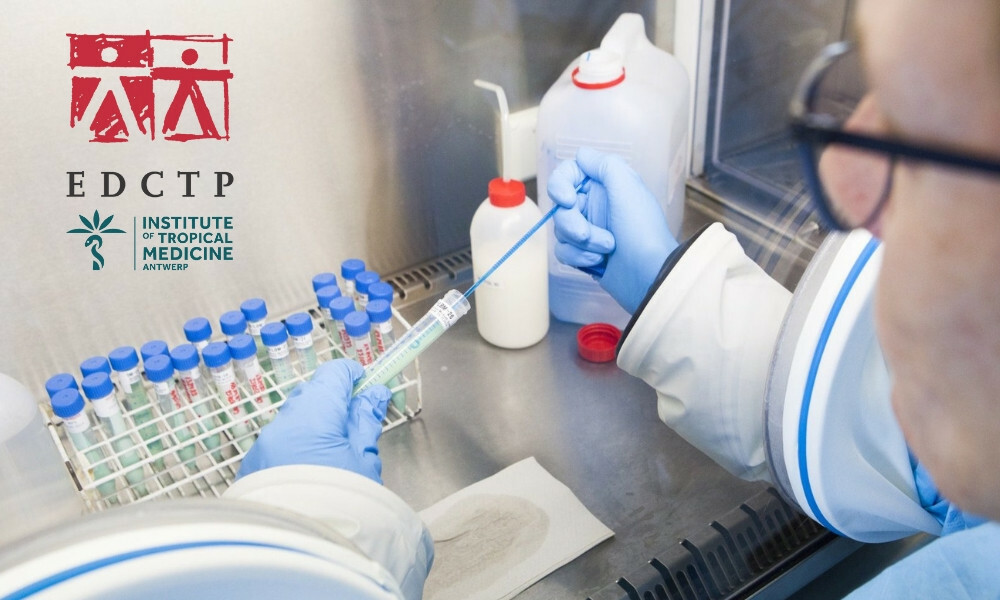
We are pleased to announce that six ITM research projects have been awarded funding by the European & Developing Countries Clinical Trials Partnership (EDCTP). The Global Health EDCTP3 Joint Undertaking is a funding programme that supports collaborative research to accelerate the clinical development of new or improved medical interventions for poverty-related infectious diseases in sub-Saharan Africa. It is a partnership between the European Union, represented by the European Commission, and the EDCTP Association, representing the governments of 15 European and 30 sub-Saharan African countries.
Out of the six approved EDCTP project proposals, two projects are led by, and four are supported by ITM.
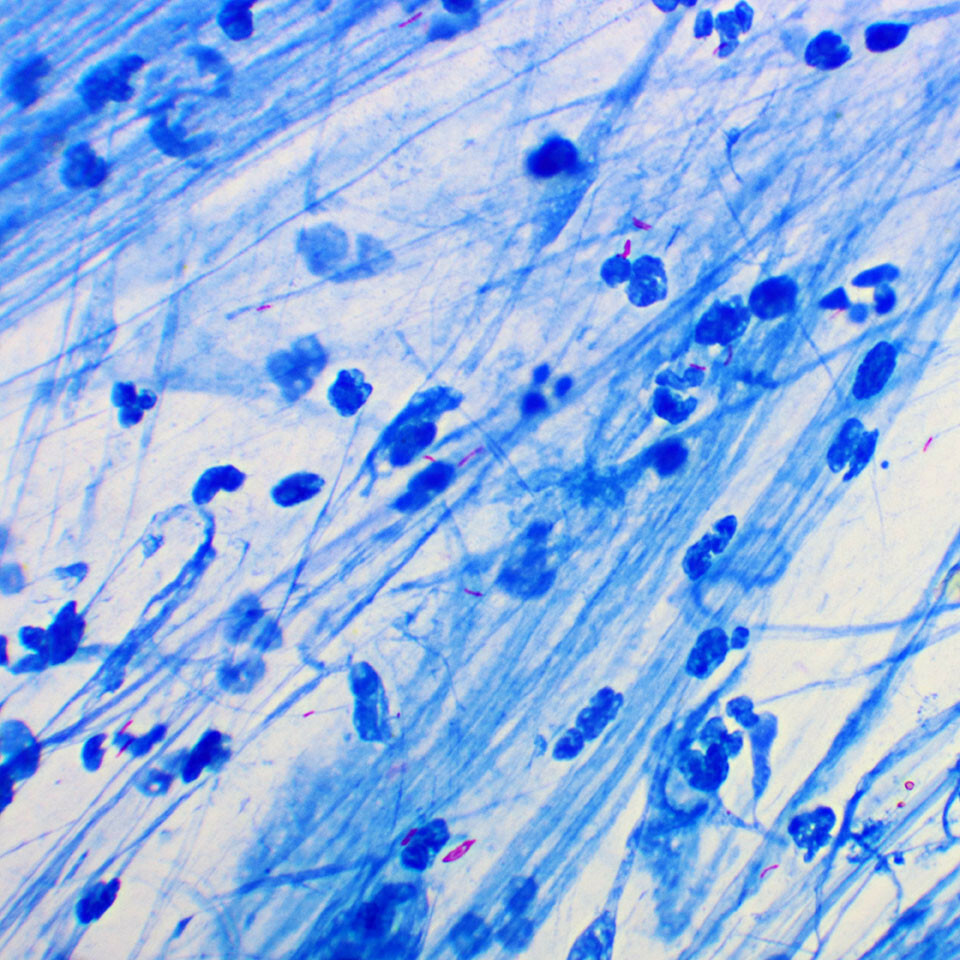
Tackling drug-resistant tuberculosis
The Tuberculosis Antimicrobial Stewardship Program (TASP) addresses the urgent challenge of expanded resistance: bedaquiline-resistant and rifampicin-resistant tuberculosis. With bedaquiline resistance rising rapidly, no evidence-based treatment regimen exists for affected people. TASP aims to investigate safety and effectiveness of treatment regimens for tuberculosis with expanded resistance. It also aims to improve clinical decision making by developing an AI-aided treatment strategy and by evaluating use of novel, rapid tests for drug resistance monitoring. Additionally, TASP will implement low-cost, co-designed portable air cleaners for environmental control in the health care settings. This cost-effective programme seeks to curb resistance, by optimising treatment regimens for the most resistant forms of tuberculosis in high burden, resource-limited settings.
ITM and its Unit of HIV and Tuberculosis are in the lead for this project, who will work together with 12 international partners.
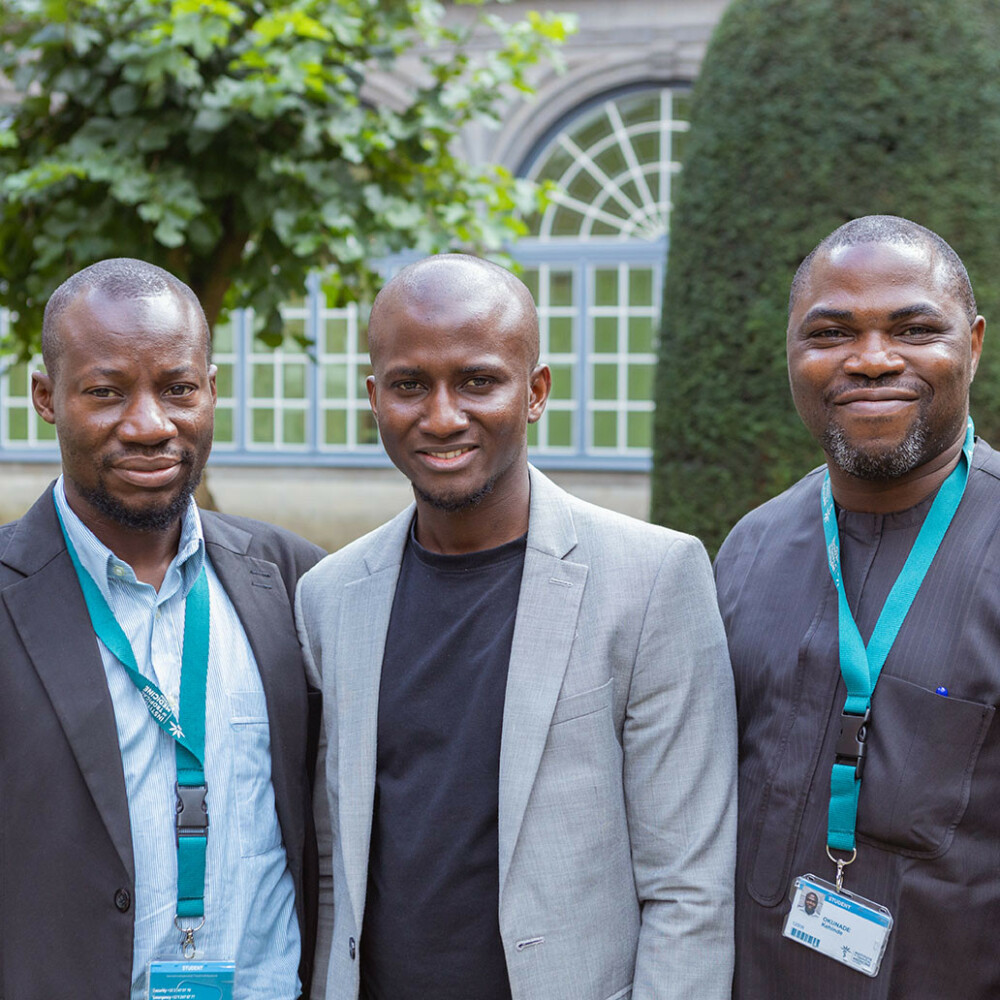
Sub-Saharan Africa Health Research and Innovation Fellowship Programme
The SAHRI Fellowship Programme aims to strengthen health research and innovation in sub-Saharan Africa by training a new generation of skilled researchers. In collaboration with African and European institutions, including BioNTech, the programme will equip 12 fellows in clinical research and biomedical innovation. Fellows will complete a 24-month Master of Science in Tropical Medicine, which integrates advanced research training with biotech systems thinking and innovation, gain industry experience, and receive structured mentorship. A 12-month return-home phase ensures local impact through knowledge application and grant proposals. By fostering South-South and North-South collaborations, SAHRI enhances regional research capacity, driving sustainable health solutions and self-sufficiency in addressing critical health challenges in sub-Saharan Africa.
The SAHRI project will be led by ITM’s Unit of HIV and Tuberculosis, in collaboration with the Unit of Education at Clinical Sciences Department, and joins nine African and European institutions.
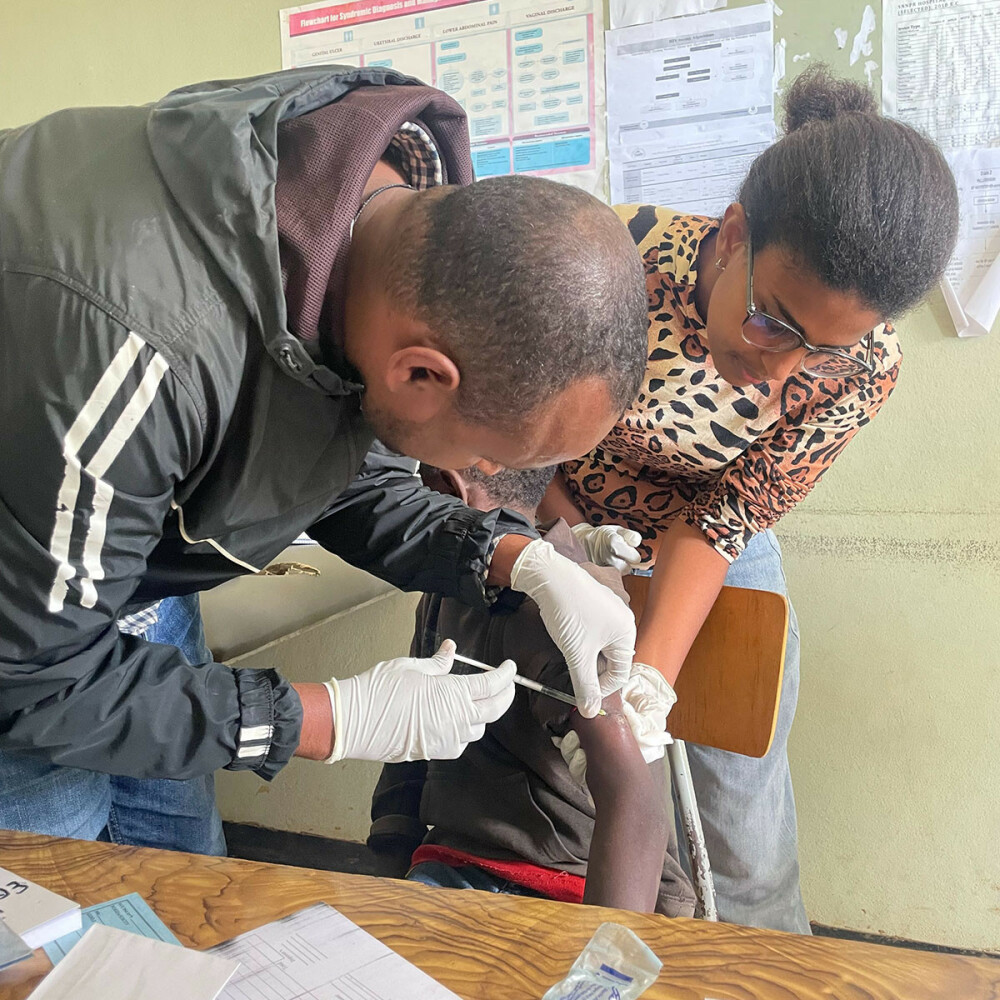
A multi-arm, multi-stage trial for cutaneous leishmaniasis
This project addresses cutaneous leishmaniasis (CL), a neglected tropical disease affecting over a million people annually, including 40,000 in Ethiopia. Current treatments, such as intramuscular sodium stibogluconate, are painful, ineffective, and inaccessible to most patients. Promising alternative therapies exist, but insufficient evidence prevents policy changes. A consortium of European and African research institutions aims to transform CL treatment through MAMS4CL, a multi-arm, multi-stage randomized trial evaluating five novel therapies. These treatments offer better tolerability, shorter duration, or home-based administration. The study integrates pharmacokinetics, health economics, and social science to provide comprehensive data for policymakers and regulators.
The MAMS4CL project is led by the London School of Hygiene and Tropical Medicine, and it involves six international partners, among which ITM and its Unit of Neglected Tropical Diseases and Clinical Trial Centre. ITM will be leading the clinical trial work package.
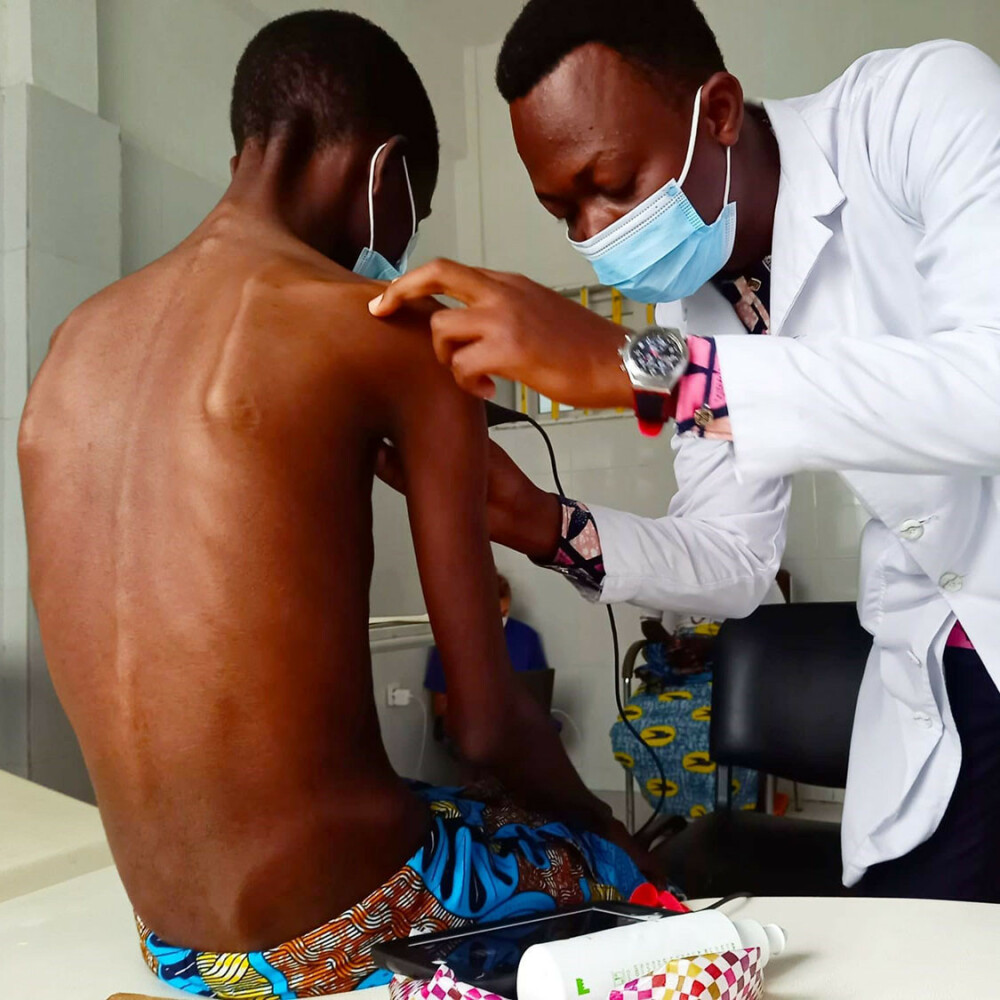
Advanced diagnostics for pulmonary tuberculosis triage in Benin, Mali and South Africa
CAD LUS4TB is an interdisciplinary initiative enhancing tuberculosis triage in sub-Saharan Africa by integrating AI-driven computer-assisted diagnosis (CAD) with a portable lung ultrasound (LUS). Given the lack of chest X-rays and molecular tests at primary healthcare levels, this project aims to provide an accessible, scalable diagnostic tool that can be used directly where patients are seen. It involves partnerships across Africa and Europe to generate evidence, advocate policy integration, and validate mobile ultrasound AI applications. Beyond tuberculosis, CAD LUS supports multi-disease detection, including pneumonia and cardiovascular conditions. This initiative aligns with Sustainable Development Goal 3.3, improving healthcare accessibility and diagnostic accuracy through AI technology sharing and interdisciplinary collaboration.
This project is coordinated by Stellenbosch University and involves eight international partners, among which ITM’s Unit of HIV and Tuberculosis.
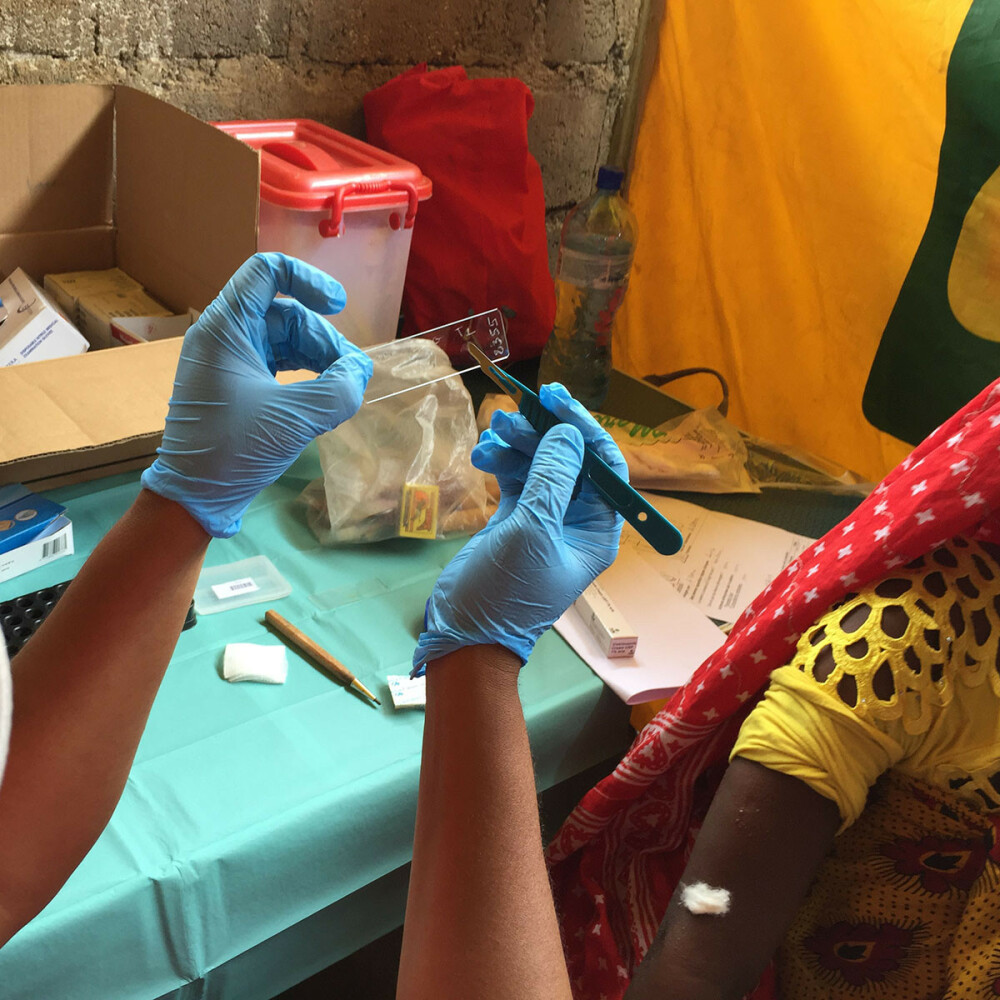
Controlling Buruli ulcer and leprosy in Africa
This project aims to revolutionise the treatment of leprosy and Buruli ulcer, two neglected tropical diseases that cause severe disabilities and social stigma in sub-Saharan Africa. Current treatments are lengthy, complex, and have significant side effects. This proposal introduces telacebec, a novel compound highly effective against the bacteria causing both diseases. Through two clinical trials, the project will test telacebec-based regimens to achieve faster cures with fewer drugs and reduced side effects. A multidisciplinary consortium of experts will lead the research, ensuring effective drug development, therapeutic delivery, and community engagement to improve patient outcomes and public health.
The TEBULA project is led by Fondation Raoul Follereau, France and includes an additional 15 international partners. The ITM arm of the project is led by the Unit of Mycobacteriology.
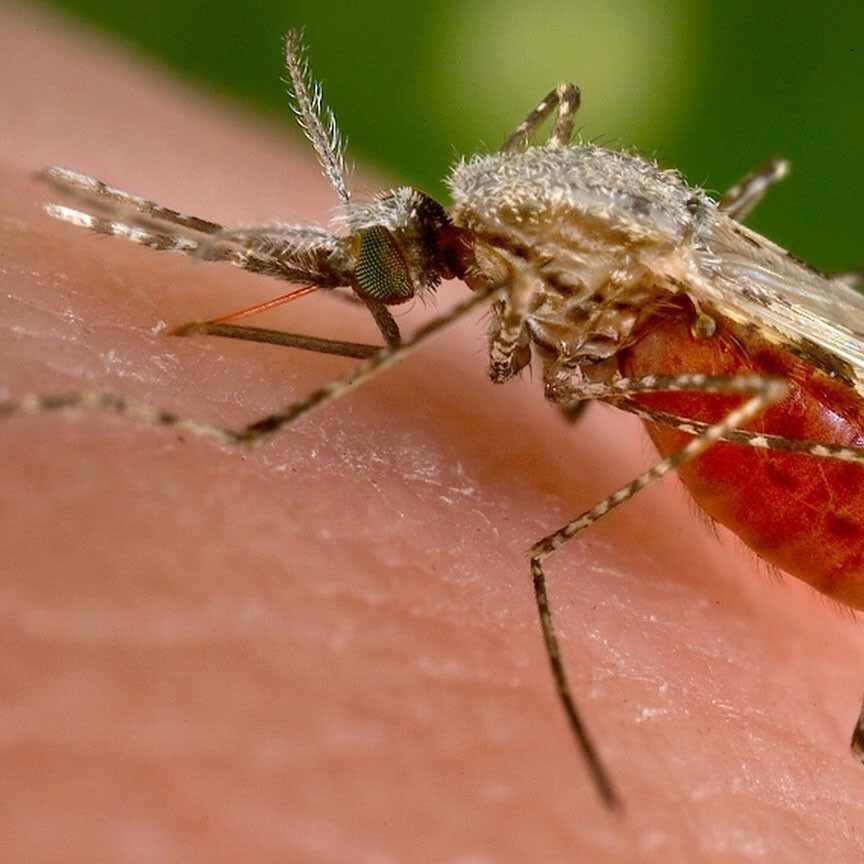
Effect of long-acting spatial repellents vs indoor residual spraying on malaria burden in western Kenya
This project aims to assess the impact of long-acting spatial repellents (LASR) on malaria in western Kenya through a cluster-randomised trial involving 66 villages. The study compares three groups:
LASR intervention using SC Johnson’s Guardian™
Indoor residual spraying with pirimiphos-methyl
Control group receiving standard malaria control measures like insecticide-treated nets and vaccines
Researchers will conduct cross-sectional surveys, health facility surveillance, entomological studies, anthropological research and economic evaluations over two years. The study primarily seeks to determine whether LASR reduces malaria prevalence compared to standard control on parasite prevalence.
The project is coordinated by the Liverpool School of Tropical Medicine (UK), with the Kenya Medical Research Institute providing technical and scientific leadership for the trial. The project involves four other international partners, among which ITM and its Unit of Socio-Ecological Health Research.
Spread the word! Share this story on









